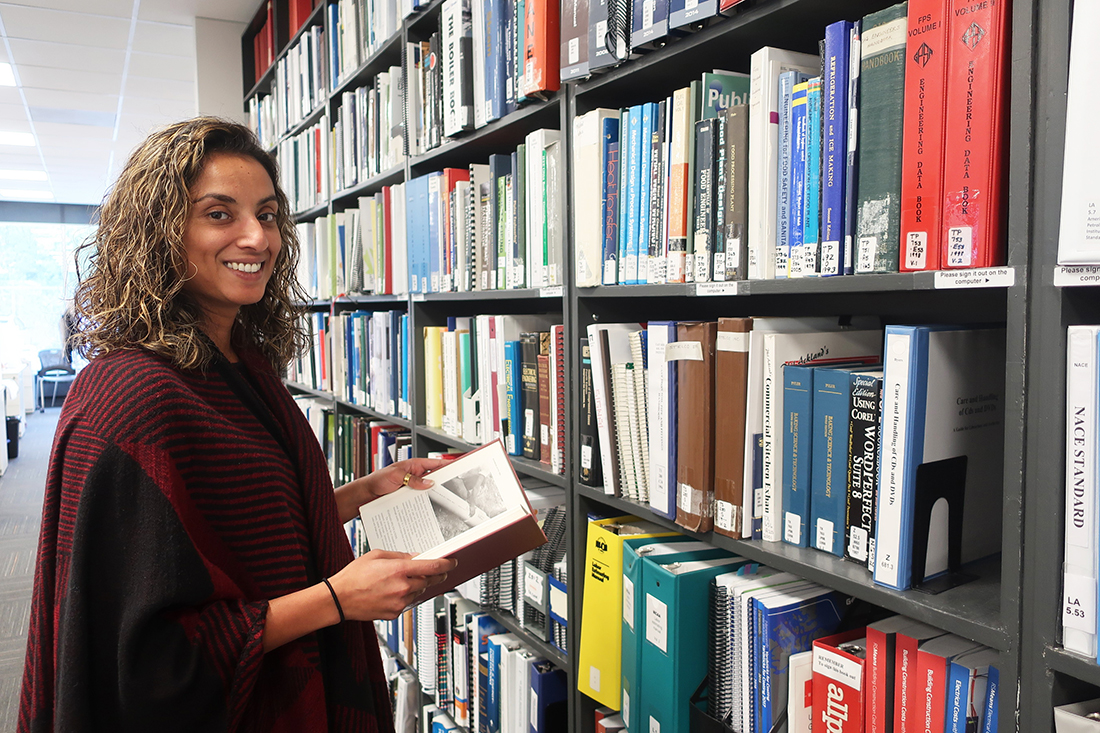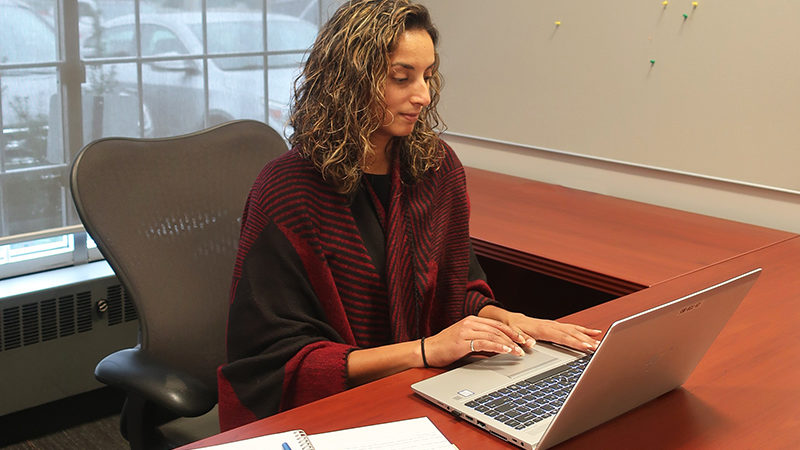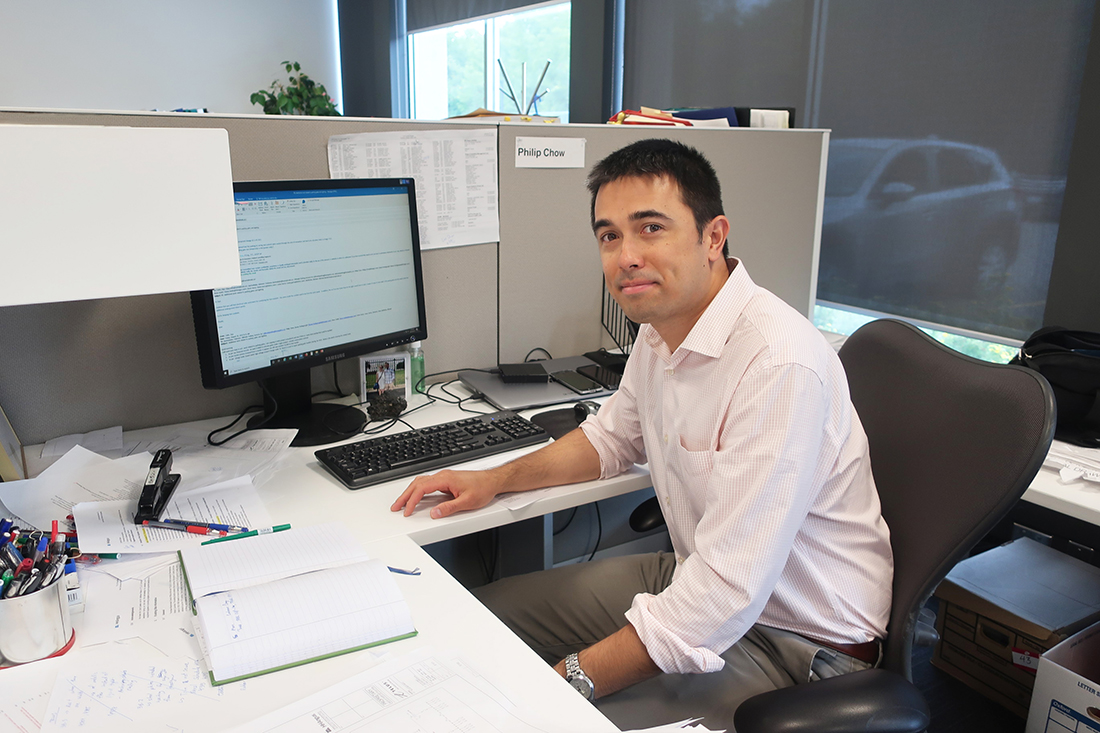
Rita Patel joined HH Angus in 2010.
What is your favorite thing about working at HH Angus?
For me, it is the people and the interaction, and the general atmosphere in the office. It’s almost familial – everyone gets along, everyone is open, super nice and very helpful. You can walk into any VP’s office, or the President’s office, talk to them about anything, whether work-related or not. And the fact that, at least for me in my role, it is not a desk job – I get to go to site.
How do you contribute to design and construction of the built environment?
I do everything from initial concept design to detailed design, to seeing the project through construction and handover to the owner. So, all of it!
Why did you become an engineer?
I was applying to university and selecting courses, thinking the whole time that I wanted to go into some sort of bio-med or airline pilot program. But, the courses were all business courses and geographical courses – there was no math involved – and I began thinking, “I’m not going like any of this”. So, when we started picking the courses I liked, I was advised that I should be an engineer, because the courses I selected were all math related, with definitive answers and some challenges. That’s how I ended up in engineering. So, a pilot was not what I wanted as a career after all! I ended up doing that on the side instead.
My two mentors have taught me a lot; for example, how to behave in a meeting and how to interact with clients. They’ve always kept me involved and have helped me build client relationships.
What projects that you are most proud of?
I mainly engineer hospital renovations, and I am proud of most of those projects because they are so challenging to deliver within the space. In healthcare facilities, you can’t just go in and disrupt everyone. The fact that we are able to do renovations in functioning operating rooms or operating theatres is great! I recall one OR project where we had to replace all the medical gases in eighteen suites over two weeks, and it went really well. I was quite nervous about that project, because it was an OR suite, so it would be very critical if anything went wrong. But, it turned out great and went exactly as planned.
You worked elsewhere before HH Angus - was that also in consulting?
No, it was in aerospace, where I was doing a lot of computational aerodynamics. I realized I wasn’t satisfied sitting at a computer doing essentially the same thing over and over. My sister was familiar with HH Angus and put me in touch with managers here, and that’s how I started working here.
So the big sell was that you wouldn’t be sitting at a desk?
Yes! Just the fact that I get to go to Sunnybrook Hospital, which is only 5 km away, made it exciting – I get to see construction, I get to see things actually getting built, which I didn’t get to do before.
Describe a typical day.
They’re never the same. Sometimes I come into the office, sometimes I go straight to a site. For me, that’s the great part – you never know what is going to happen from week to week, or even day to day. It is not a monotonous job where you just come in and do the same thing again and again.

What’s a special moment you’ve enjoyed recently?
Being promoted to Manager, Construction Services is a good one. I’m now working in both healthcare and construction. The great thing about construction is that I was already working closely with the inspectors, so it wasn’t much of a change for me. I already understood what they do, and being able to help them even more now is a good thing.
How have senior managers helped guide you?
My two mentors have taught me a lot; for example, how to behave in a meeting and how to interact with clients. They’ve always kept me involved and have helped me build client relationships. Now, they trust me with their clients. Technically, my mechanical mentor has provided the best guidance I could ever ask for. He just knows how to get things built, and he can solve any problem I have ever faced.
What advice would you give to somebody applying to work at HH Angus?
Don’t be afraid to ask for help, because you don’t know what you don’t know. I see younger staff, especially new grads, being hesitant to ask questions because they think they should know the answer already. But there are literally no dumb questions, and no one will judge you for asking.
What is it about design that drives you?
It’s fun! Let’s say you are renovating a space - how do we get air supply to this space? We have to figure out how we are going to do that. It’s a challenge, especially in existing facilities. And then you get to roll it out and see that it works! I like going through the entire process because you know that you did the whole thing, from start to finish. Also, because I work in the healthcare sector, it is nice knowing that you are helping people.
Don’t be afraid to ask for help. My other favourite line is – you don’t know what you don’t know. I see younger staff being afraid to ask questions because they think they should already know the answer. But, literally, there are no dumb questions, and no one will judge you for asking.
What trends are you excited about?
I am a member of the CSA HVAC Committee. We are constantly developing new clauses or new standards to help improve the quality of HVAC in healthcare facilities. Being part of this committee is really exciting. Also implementing those new standards; for example, providing extra air filtration for patients with immune system challenges - if you have low immunity, you need greater filtration of the air being pumped into the room. Also, implementing technology that helps reduce airborne infections. Hospitals risk many healthcare-associated infections, and we want to do all we can to minimize those risks, so we specify equipment such as copper toilet seats or UV lighting. Copper kills bacteria, so if you have a copper-infused toilet seat, airborne infectious matter in the vicinity will not survive.
What would people be surprised to know about you?
I flew small planes for two or three years. It was fun, but probably gets more fun when you get to bigger planes.
What skills or traits help you most in progressing through your career?
People tell me that I am pretty efficient, and self-sufficient. If you give me something to do, I will find a way to get it done. And, most of the time, 99.9% of my work will be done on time and of good quality.
If you could change one thing how hospitals are constructed, what would it be?
I would tell hospitals to stop putting patients in buildings that are over 40 years old, where there are no HVAC systems. Regarding new builds, the biggest challenge we have is space – said every engineer ever! All the space tends to be taken up for clinical use, and mechanical/electrical infrastructure is often an afterthought. We are always struggling with service distribution. So, I would ensure there was adequate space allowed for these essential building services.

